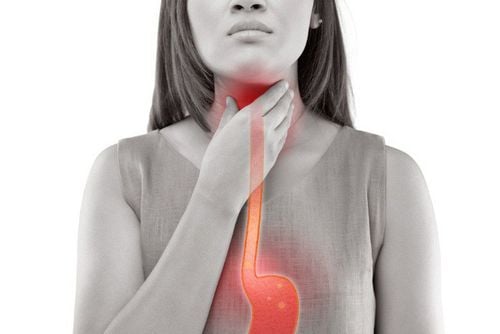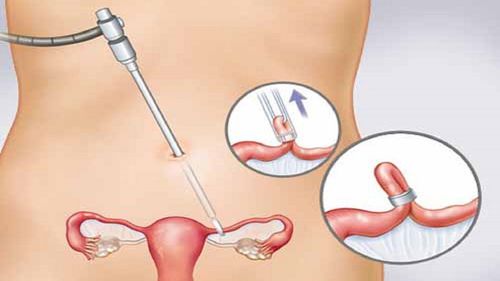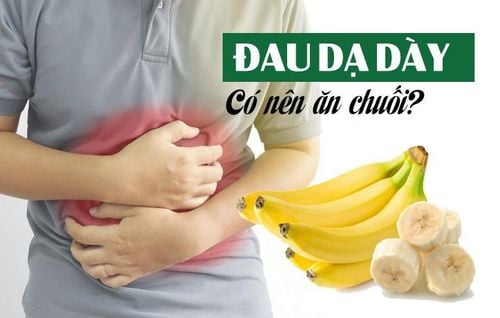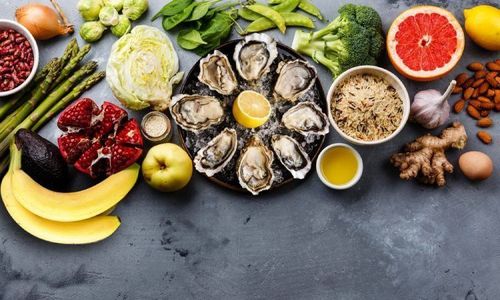Testosterone is a sex hormone that plays an important role in health. Maintaining healthy testosterone levels is important for increasing muscle mass, improving sexual function, and enhancing strength. Moreover, changes in testosterone levels are linked to a number of health conditions, including obesity, type 2 diabetes, metabolic syndrome, and heart problems.
1. Foods That Can Lower Testosterone
Testosterone is one of the main sex hormones in the body. Although men produce more testosterone, it is also an important hormone for women.
Testosterone promotes increased muscle mass, bone mass, body hair, and affects reproduction. Normally, the body can effectively regulate hormones and keep testosterone levels where they need to be. However, some foods can interfere with this process by unbalancing hormone levels. So what to eat to reduce testosterone? Here are 8 foods that lower testosterone levels that we can avoid.
2. Some Foods That Reduce Testosterone
2.1. Soy and Soy Products
Some studies show that regularly eating soy products such as edamame, tofu, soy milk, and miso can lower testosterone levels.
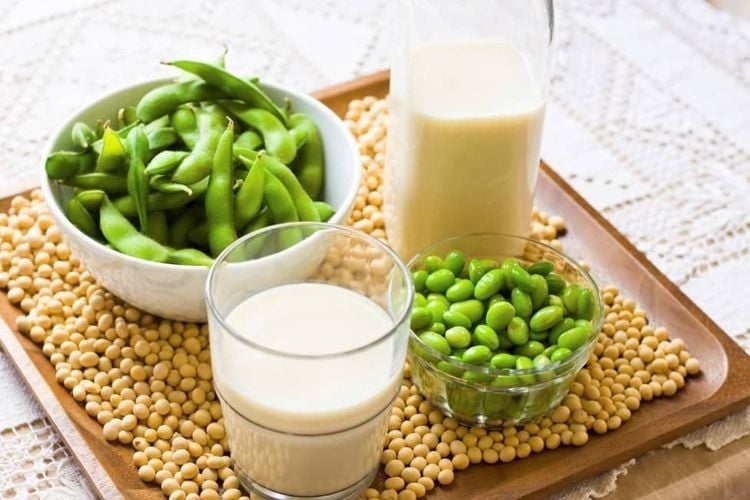
For example, a study in 35 men showed that drinking soy protein isolate for 54 days resulted in decreased testosterone levels. Furthermore, foods made from soy are also high in phytoestrogens. These are plant-derived substances that mimic the effects of estrogen in the body by altering hormone levels and potentially lowering testosterone.
Although human research is limited, a study in rats showed that consuming phytoestrogens significantly reduced testosterone levels and prostate weight.
However, a few other studies have shown different results: soy-based foods may not have as much of an effect as these isolated soy components.
In fact, a review of 15 studies found that soy foods did not affect testosterone levels in men. Therefore, further research is needed to understand how whole soy products might affect testosterone levels in people.
2.2. Mint
Perhaps mint is most famous for its strong stomach-soothing properties. However, some studies suggest that mint can cause a drop in testosterone levels. In particular, spearmint and peppermint are two herbs from the mint family that have been shown to have a direct impact on testosterone.
A 30-day study in 42 women found that drinking spearmint herbal tea daily caused a significant drop in testosterone levels. Similarly, another animal study found that administering peppermint essential oil to rats for 20 days led to a decrease in testosterone levels. Or, another animal study also noted that drinking peppermint tea changed hormone levels in rats, leading to a decrease in testosterone, compared to the control group.
However, most studies on mint and testosterone have focused on women or animals. Thus, high-quality research conducted in humans focusing on both sexes is needed to assess how mint affects testosterone levels in both men and women.
2.3. Licorice Root
Licorice root is an ingredient often used to sweeten candies and drinks. It is also a common natural remedy in holistic medicine and is often used to treat everything from chronic pain to persistent coughs.
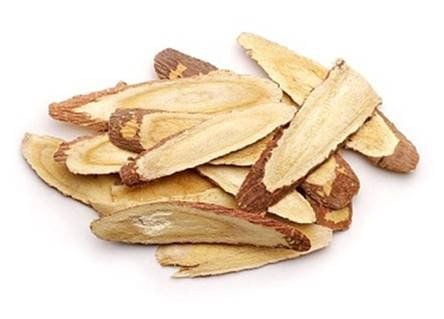
In recent years, a number of studies have found that licorice can also affect hormone levels, and can potentially lead to a decline in testosterone over time. A study of 25 men consuming 7 grams of licorice root per day showed that testosterone levels decreased by 26% after just one week.
Another small study in women showed that licorice can also reduce testosterone levels in women. The study results indicated that 3.5 grams of licorice used daily reduced testosterone levels by 32% after just one menstrual cycle.
However, remember that this only applies to licorice root, not licorice candy or products that do not contain the licorice root ingredient.
2.4. Vegetable Oils
Currently, there are many types of vegetable oils including canola oil, soybean oil, corn oil, and cottonseed oil. These are oils that can provide polyunsaturated fatty acids. These fatty acids are often classified as a healthy fat source, but they can also lower testosterone levels, as some studies have suggested.
A study of 69 men showed that frequent consumption of polyunsaturated fats was associated with significantly lower testosterone levels. Or, another study of 12 men showed the effect of diet on testosterone levels after exercise and reported that the amount of polyunsaturated fat was related to low levels of testosterone.
However, recent studies are limited and most are observational with small sample sizes. Therefore, more high-quality studies are needed to examine the impact of vegetable oils on testosterone levels in the general population.
2.5. Flaxseed
Flaxseed contains heart-healthy fats. In addition, it also contains other important nutrients such as fiber, vitamins and minerals.
However, some studies suggest that flaxseed can cause a decrease in testosterone levels. This is because flaxseed is high in lignans. These are plant compounds that bind to testosterone and force it to be eliminated from the body. Furthermore, flaxseed is rich in omega-3 fatty acids, which may also be linked to lower testosterone.
In a small study of 25 men with prostate cancer, supplementing with flaxseed and reducing overall fat intake was shown to significantly reduce testosterone levels. Similarly, a case study reported that daily flaxseed supplementation reduced testosterone levels in a 31-year-old woman with polycystic ovary syndrome, a condition characterized by increased male hormones in women.
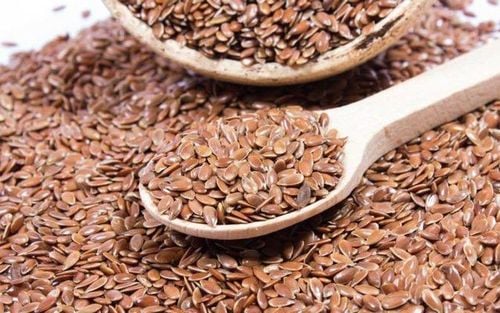
However, larger-scale studies are still needed to further assess the effects of flaxseed on testosterone levels.
2.6. Processed Foods
Besides often being high in sodium, calories, and sugar, processed foods such as convenience meals, frozen foods, and pre-packaged snacks are also a common source of trans fats.
Trans fat is an unhealthy type of fat that has been linked to an increased risk of heart disease, type 2 diabetes, and inflammation. In addition, some studies have found that regular consumption of trans fats from sources such as processed foods can lower testosterone levels.
A study of 209 men found that those who consumed the highest amounts of trans fats had 15% lower testosterone levels than those with the lowest consumption. In addition, they also had 37% lower sperm counts and reduced testicular volume, which may be linked to reduced testicular function.
Additionally, animal studies have also found that large amounts of trans fats can reduce testosterone levels and even impair reproductive performance.
2.7. Alcohol
Studies show that drinking too much alcohol can cause testosterone levels to plummet, especially in men. A study of 19 healthy adults showed that consuming 30 - 40 grams of alcohol per day (equivalent to about 2-3 standards) reduced testosterone levels in men by 6.8% over a period of three weeks.
Or another study also reported that acute alcohol poisoning is associated with increased testosterone in women but decreased testosterone levels in men. However, this evidence is not entirely clear when it comes to the effects of alcohol on testosterone.
In fact, both human and animal studies have mixed results, because there are still some studies showing that alcohol can actually increase testosterone levels in certain cases. Therefore, further research on this issue is needed to understand how different doses of alcohol affect testosterone levels in the general population.
2.8. Nuts
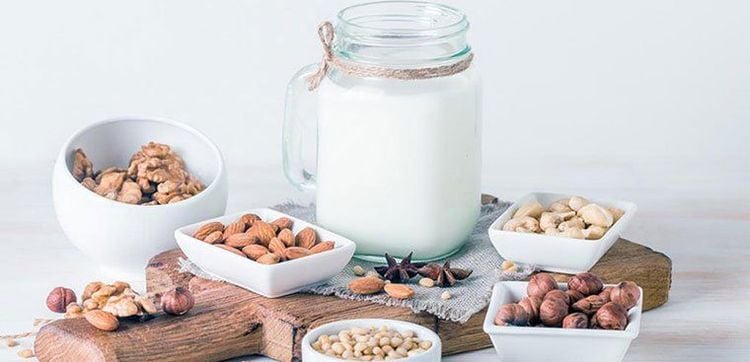
Nuts are a great food source with many important nutrients including fiber, heart-healthy fats, folic acid, selenium and magnesium. However, some studies suggest that some nuts can lower testosterone levels.
A small study of 31 women with polycystic ovary syndrome showed that walnuts and almonds increased levels of sex hormone-binding globulin (SHBG) by 12.5% and 16%, respectively. SHBG is a protein that binds to testosterone, which can lead to a decrease in free testosterone levels in the body.
Furthermore, nuts are also generally high in polyunsaturated fatty acids, which have also been linked to lower testosterone levels in some studies. Although some studies have shown these findings, more in-depth research is needed to determine how certain nuts can affect testosterone levels.
In short, changing your diet is one of the most effective ways to maintain healthy testosterone levels. In addition, maintaining a healthy lifestyle, getting plenty of sleep, and getting adequate exercise can also boost testosterone naturally.
Please dial HOTLINE for more information or register for an appointment HERE. Download MyVinmec app to make appointments faster and to manage your bookings easily.
Reference source: .healthline.com





